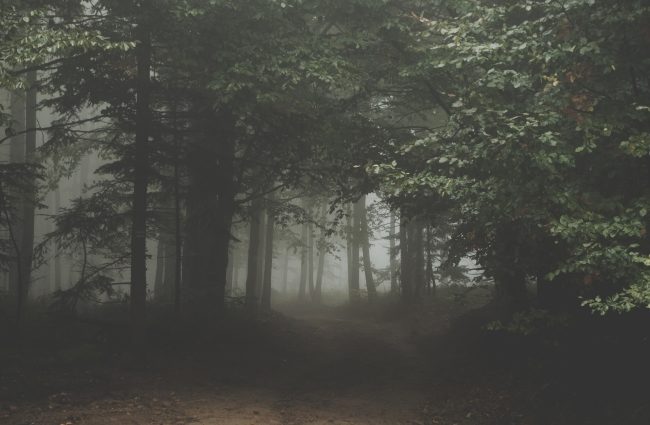 Danita Dodson’s new book of poetry is called The Medicine Woods. If you recall, our Associate Editor, Edward Francisco reviewed her last book, Trailing the Azimuth. Her poems speak so easily to my heart, so I wanted to write the review for her new collection. In The Medicine Woods, her poems conjure longings for Appalachian soil and ancestors. Her poems tug gently and encourage me to see the past’s beautiful memories that I buried so long ago due to time and circumstances. They remind me about place and Earth and elements and ancestors.
Danita Dodson’s new book of poetry is called The Medicine Woods. If you recall, our Associate Editor, Edward Francisco reviewed her last book, Trailing the Azimuth. Her poems speak so easily to my heart, so I wanted to write the review for her new collection. In The Medicine Woods, her poems conjure longings for Appalachian soil and ancestors. Her poems tug gently and encourage me to see the past’s beautiful memories that I buried so long ago due to time and circumstances. They remind me about place and Earth and elements and ancestors.
I could evaluate the poetic elements and mechanics of Dodson’s poetry – how she combines stunning imagery and perfect diction, how the poetic elements are masterfully and precisely polished. I could write about these things only. However, what I’d like to do is share with the reader my perceptions and, later, how the poems move me. So, we’ll follow Danita Dodson as she weaves and walks a moving journey through The Medicine Woods.
The collection is divided into four sections: “Snapshots of Woodland Well-Being,” “Voices and Vestiges in Earth,” “Meditations for Healing,” and “Keepers.” Inside these sections, Dodson guides the reader deep into mystical places. We see Earth’s beauty and hear her tongues. We seek to heal our Earth, even as we accept her curatives and restoratives; and we maintain her as our ancestors did.
Everything in these mountains – from flora to fauna, detritus to lichen, human to woodland creature – everything works in harmony. Dodson’s poems present a stunning visual and aural orchestra that presses us to realize we are all connected and humankind is just one part of the grand symphony.
Dodson’s poems paint an aesthetic earth with harmony and healing. The very first poem, “Solar Eclipse,” with its dreamlike visuals, details the 2017 solar eclipse. The surreal light radiates and expands across the land and the experience unites every being. Dodson writes:
In these moments, the whole land pauses,
bonded by an offbeat happening that urges
us to recognize there is something larger,
something more majestic . . . (lines 18-21)
In this pause, a brief respite allows us to contemplate not only the beauty of the moment, but also our connections with the woodlands and the splendor of a divine Creator.
In her poem, “The Morning as Bride,” dawn’s light is shifted slowly from moon to sun. The moon “is suspended like a glowing pearl,” (lines 2-3) waiting behind the veil of clouds like a bride who greets the groom. We are reminded to look for “what unexpected beauty the day may hold.” (25)
Even the smallest creatures, those beings we often overlook, are beautiful and useful. Dodson’s poem, “Mussel Power,” reminds us that little-seen creatures perform “colossal” (19) workings every day of our lives. The speaker points out that mussels “spend their long lives buried partly in the riverbed sediment,” (16) but they filter pollutants from “gallons of water.” (19) These tiny creatures have purpose.
Dodson’s poems draw the reader close enough to hear Earth’s voice. The earth laughs; trees tell their stories; water and stone are messengers; and the river speaks.
For a person who was born here, or, for people who have fallen in love with this region, no matter where you are, Appalachia, in all her motherdom, will beckon you. The mountains follow you everywhere, imploring you to remember who you are and what made you. In Dodson’s “Haunted by Hollers and Hills,” the speaker remembers with fondness “where soup beans and cornbread/ sit welcomingly on an inherited stove,” (lines 11-12) and how “the tongues of ancestors speak.” (13) One might try to move away, to change, to forget Appalachia, and forget ourselves. Yet the speaker reveals that in homebased Appalachia, “this is the one true place where I can/ most commune with the green earth –” (21-22)
In The Medicine Woods, Dodson’s love, devotion, and concern for Earth are evident. Her poetry allows us to hear the soil. In “Earth Laughter,” she writes:
There are healing echoes
of laughter –
laughter –
resounding joyfully in the soil. (1-4)
And she brings the woods home in a more personal, intimate way in “The Language of a River”:
My river has a tongue honeyed
with the ancient argot of hill folk,the riparian idiom of my people . . . (10-13)
But this river, the Clinch River, the speaker says has
. . . no code-switching its accent,
as unfeigned as water star-grass. (19-20)
The woods are also a place of healing, offering offer respite, retreat, and meditation. In “Feeling the Electric Earth,” the speaker hunts for “sassafras and yellow root, forest medicine and mountain lore.” (5-6) In these mountains, healing may come in the form of wildflowers, herbs, roots, bark, and just plain being. The woods offer a place to meditate and restore oneself. And the poet reminds us in “Mid-Morning Meditation” that we need not meditate closed indoors:
This day there is no buckwheat cushion
in a Zen-graced corner of a warm room.
Today mindfulness walks in the woods. (6-8)

The woods – the very Earth – is the place to “find well-being.” (26)
Forbears gaze at us from behind Dodson’s words. The speaker in “Feeling the Electric Earth,” mentions root hunting “in my ancestors’ Tennessee woods,” and releasing a skink “the way I had seen my Mamaw do.” In the quiet hours, the faint, distant sounds of our ancestors, remind us that they, too, had a share in the same air we breathe, the same water we drink, the same land we walk upon and live upon.
The Medicine Woods also takes on a more serious tone. The poems offer a grave warning about our earth and how we care for her – or how we do not care for her.
In “Ecology for Eli,” about a Union soldier in the Civil War, Dodson reminds us that aggressions begin when we avoid dialogue and nonviolence. When humanity splits large enough for war, the earth splits large, too.
Trees were massacred – about two million –
armies axing them for firewood and bridges,
destroying the habitats of birds and bats,
the roots of life shattered, ravaged, stolen.
The trees left standing often bore their own
battle scars, perfectly riddled with bullets. (lines 22-27)
The poem “Mariposas,” bemoans how much people (including the poem’s speaker) are oblivious to their impact on a region. The speaker also mourns humankind’s devastation:
As bulldozers annihilate the forests,
and pesticides poison quaffing insects,
perhaps these flitting souls with broken
wings resurrect in broken places . . . (lines 36-39)
In “The Ancestors,” Dodson tells us that our predecessors also give warning:
. . . the voices of our ancestors hasten us
to preservation because the future
will not exist in a vacuum but must be
linked to a remembrance of the past. (lines 5-8)
The book’s last poem is titled “We.” Dodson writes that we are “heedless of the impact of our choices.” (line 5) Her poem reminds us that we are simply “travelers here,” (23) that this place we inhabit is “borrowed from our children.” (25) As such, we must collectively treat the planet better. If we don’t, this region, this mountain “will diminish daily” (26) until nothing.
Her poems also connect with spirit. In “Transient Art in the Gloaming,” the Great “Artist” (line 1) paints the earth with jewels. The Creator is found in even the smallest things, yet the earth needs succor. So we must answer the call. And
. . . we must pray healing, dream healing, weave healing,
speak healing, paint healing, write healing,
bring healing back . . . (“Faces of the Poorest and Weakest,” lines 36-38)
I highly recommend The Medicine Woods. Danita Dodson is a true, soulful poet of Appalachia, and a rare gem in today’s poetry. Her poems take me back to my roots – figuratively and geographically. They are written with elegance and grace and they glide along the mind like a summer breeze. That is not to say, however, that her poems are like cute, fluffy bunnies. No, her poems store tremendous word power. Through them, I hear the earth sing and laugh. Through them, I see wildlife and green life. I taste the creek’s crisp, cool water and sassafras root and soup beans and cornbread. I feel tree barks and grasses and little creatures. Her poetry journeys to find the medicines of air, earth, water, and spirit. Danita Dodson wants to share these experiences with you, too. You may be transformed, or, perhaps experience a reawakening . . . if you consider our interconnections in The Medicine Woods.
Click each of the following to find where to purchase Danita Dodson’s poetry:
**Featured image from Pxhere







A brilliant review of a poet’s brilliant work!
Thank you, Ed. That means so much to me.